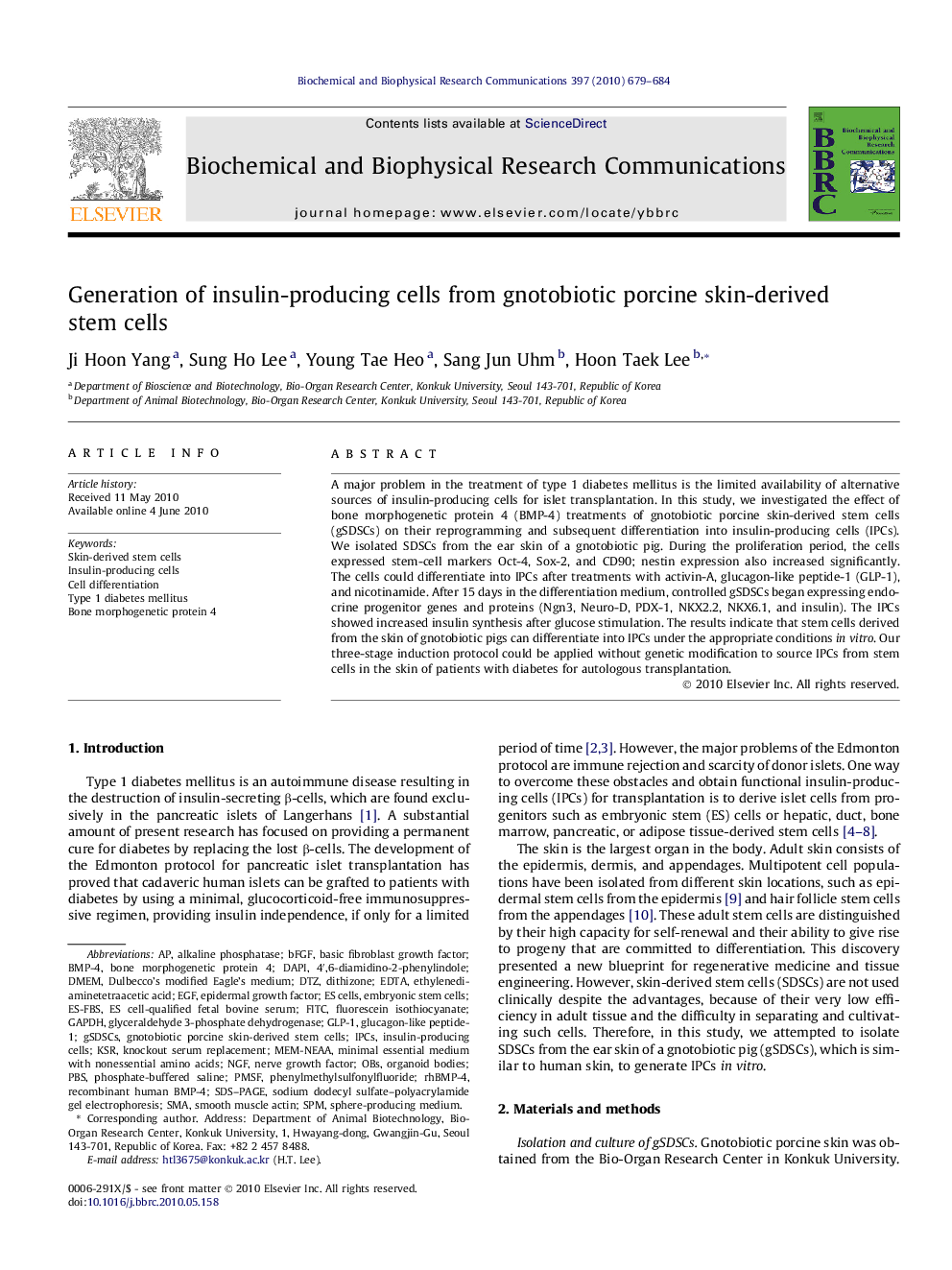| Article ID | Journal | Published Year | Pages | File Type |
|---|---|---|---|---|
| 1931744 | Biochemical and Biophysical Research Communications | 2010 | 6 Pages |
A major problem in the treatment of type 1 diabetes mellitus is the limited availability of alternative sources of insulin-producing cells for islet transplantation. In this study, we investigated the effect of bone morphogenetic protein 4 (BMP-4) treatments of gnotobiotic porcine skin-derived stem cells (gSDSCs) on their reprogramming and subsequent differentiation into insulin-producing cells (IPCs). We isolated SDSCs from the ear skin of a gnotobiotic pig. During the proliferation period, the cells expressed stem-cell markers Oct-4, Sox-2, and CD90; nestin expression also increased significantly. The cells could differentiate into IPCs after treatments with activin-A, glucagon-like peptide-1 (GLP-1), and nicotinamide. After 15 days in the differentiation medium, controlled gSDSCs began expressing endocrine progenitor genes and proteins (Ngn3, Neuro-D, PDX-1, NKX2.2, NKX6.1, and insulin). The IPCs showed increased insulin synthesis after glucose stimulation. The results indicate that stem cells derived from the skin of gnotobiotic pigs can differentiate into IPCs under the appropriate conditions in vitro. Our three-stage induction protocol could be applied without genetic modification to source IPCs from stem cells in the skin of patients with diabetes for autologous transplantation.
